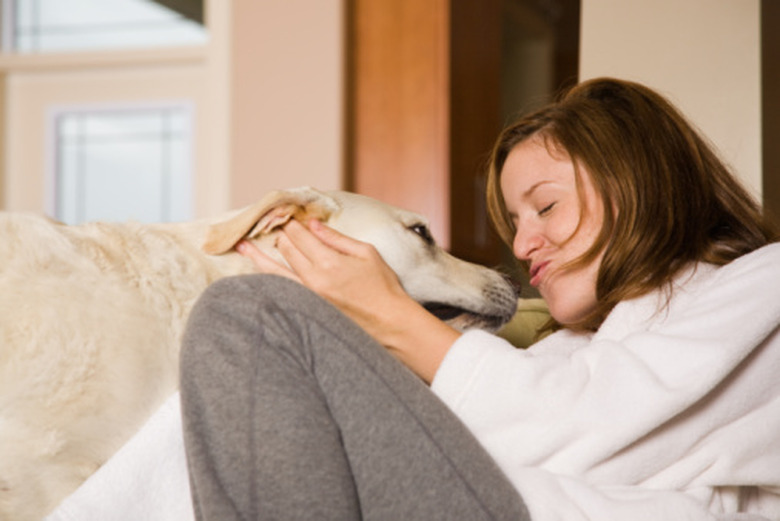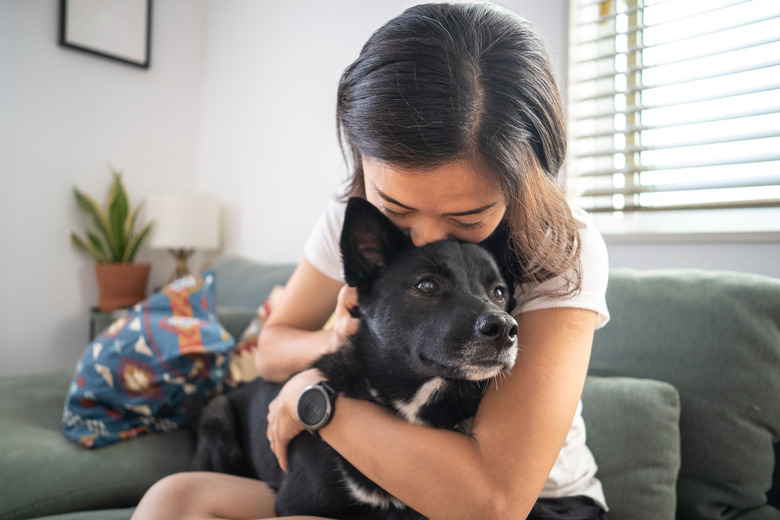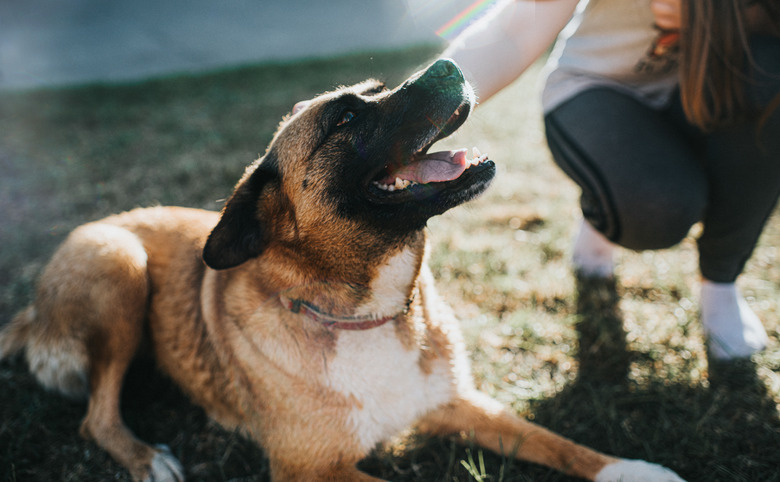How To Check A Puppy's Hearing
Puppies are often playful and rambunctious, but when they are ignoring you, you may start to wonder if they can hear you at all. There are a few things you can try at home, but if you believe your pup can't hear, take her to the vet for a hearing test. So, at what age do puppies start hearing? When can you start testing their hearing?
At what age do puppies start hearing?
At what age do puppies start hearing?
Puppies are born without the ability to hear. It isn't until they are about 3 weeks old that puppies are able to hear. They develop the ability to see at 14 to 21 days, and before that, they rely on their sense of smell and their mothers to navigate the world.
Once the sense of hearing does kick in, dogs are able to hear a much wider range of sounds than humans. While it is not common, some puppies are deaf, and in other cases, dogs may lose hearing when they age. The symptoms of hearing loss in older dogs are much easier to spot, but there are some things you can look for in younger puppies once they are old enough to hear.
Symptoms of hearing loss
Symptoms of hearing loss
If your older dog starts to lose his hearing, your will notice some changes in behavior. This might include a normally obedient dog suddenly ignoring you; a lack of response to normal triggers, such as the ringing of a doorbell; excessive barking; sleeping more than usual; and apathy. You may also notice that his ears don't move, the sound of his bark has changed, and he tends to startle more easily.
Detecting hearing loss in puppies is much more difficult, as the rambunctious pups enjoy exploring their new world and haven't yet learned to listen to you rather than their mother and littermates. You may notice that his ears don't move in the direction of the sound and that he doesn't react when you speak to him in an excited voice or make noise with a toy.
Home tests for hearing loss
Home tests for hearing loss
If you still aren't sure if your pup has hearing loss based on the symptoms, you can try a couple of home tests. These are not medical tests and won't give you a solid diagnosis, so be sure to make an appointment with your vet to confirm the hearing loss.
One home test you can try is to clap your hands loudly. Do this when you are standing some distance from your dog so that you can be sure she is reacting to the sound of the clap and not the movement of your hands. Another option is to have a friend or housemate ring the doorbell when you can observe the dog's reactions.
If your pup doesn't react, she may not be able to hear, and a visit to the vet is in order. Your vet can help to determine the cause, and since not all hearing loss is permanent, especially in adult dogs, the vet can determine the best treatment options. Even if she does react to the home test, if you notice concerning behavior changes in your dog, visit the vet. She could be deaf in only one ear, or she may have another medical condition that needs attention. You can also discuss how to help a deaf dog live a safe and happy life.
BAER testing for dogs
BAER testing for dogs
Brainstem auditory evoked response (BAER) is the hearing test administered by your veterinarian. Your puppy must be at least 35 days old. Your vet may sedate your dog to perform the test.
In this test, your vet will insert headphones into your dog's ear and play a sound. This part is very similar to the hearing test you might take yourself. However, since a dog can't tell you that he hears a sound, the vet measures the electrical activity in the brain stem that indicates a response to sound. The response or lack of one will tell the vet whether your dog can hear in either ear.
This testing is often recommended for certain breeds that are known to have hereditary conditions that cause deafness. A few examples include Akitas, beagles, boxers, Dalmations, German shepherds, and Siberian huskies.
References
- American Kennel Club: Puppy Senses: How Your Puppy Sees, Hears, and Smells the World
- Forever Vets Animal Hospital: How to Tell if Your Dog is Deaf: A Guide to Hearing Loss in Dogs
- Merck Manual Veterinary Manual: Deafness in Dogs
- Animal Friends Insurance: Is My Dog Deaf?
- Orthopedic Foundation for Animals: Congenital Deafness
- BluePearl Specialty and Emergency Pet Hospital: BAER Test for Hearing Loss
- Louisiana State University: Dog Breeds With Reported Congenital Deafness


